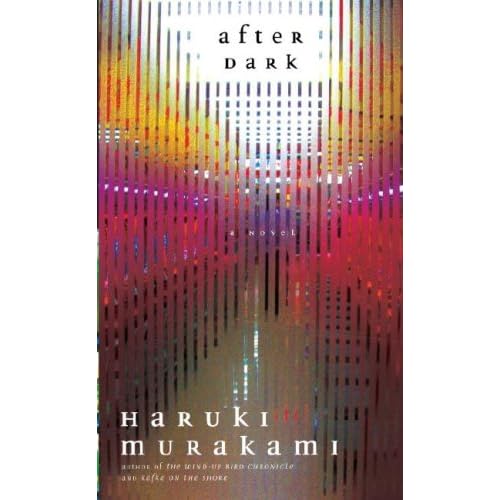
A couple of weeks ago, I read After Dark, the newest English translation from Haruki Murakami (my favorite writer). It was absolutely lovely. About 9/10 through the book, I wondered "How are there only a few pages left? I would need 300 more to find out about what happens to these people." But when the book ends, it is perfectly clear as to what Murakami did. I can't really explain what exactly it was that he did do, but it's genius. Here are the parts I underlined throughout the whole thing, and they kind of sum the story up quite well. Cliffs notes, Johanna style.
The date is just about to change.
She reaches out at regular intervals and brings the coffee cup to her mouth, but she doesn't appear to be enjoying the flavor. She drinks because she has a cup of coffee in front of her:
"I'm kind of a low-key guy. The spotlight doesn't suit me. I'm more of a side dish - cole slaw or French fries or a Wham! backup singer."
"...it was great. ..The first time I heard it, I felt the scales fall from my eyes."
Music for the middle of the night.
This could be an Edward Hopper painting titled Loneliness.
The two live happily ever after. Love conquers all. It's like: we used to be miserable, but now everything's great. They drive a shiny new Jaguar, he plays squash, and sometimes in winter they throw snowballs.
...crescent moon... Strange that, viewed from one spot in the predawn city, such a big solid object could be hanging there free of charge.
"Historically speaking, it's quite a recent development that human beings have felt easy about going out after dark. It used to be after the sun set, people would just crawl into their caves and protect themselves. Our internal clocks are still set for us to sleep after the sun goes down."
If we could further sharpen our auditory sense, we might be able to hear bicycles on the street or people talking to each other or the weather report on the radio. We might even be able to hear bread toasting.